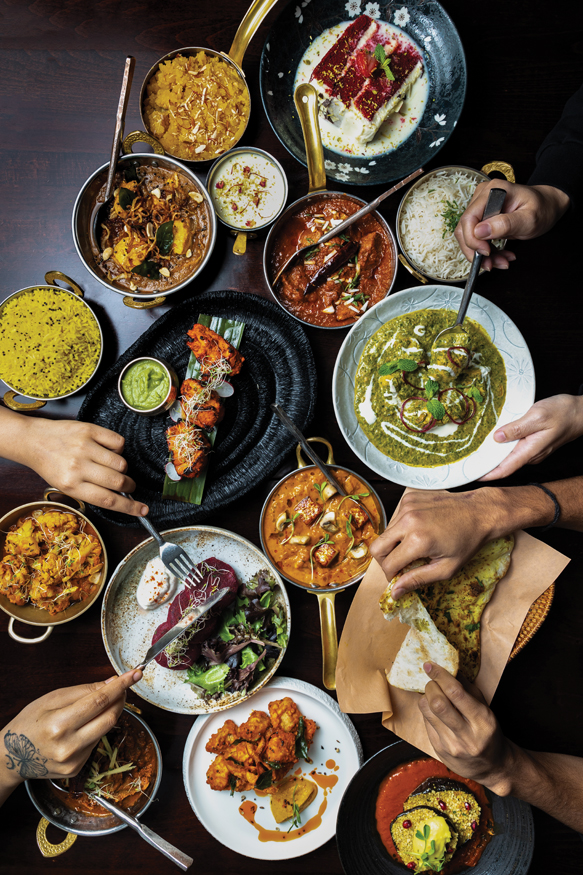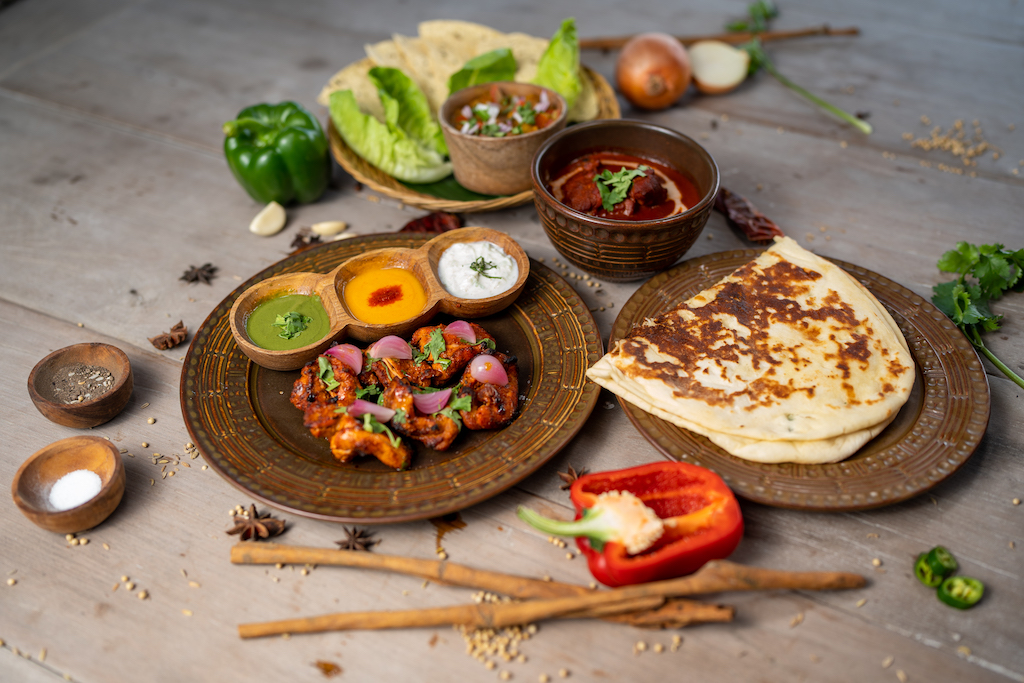Twisted Indian Fusion Street Food (Panorama) - The Facts
Table of ContentsThe Of Twisted Indian Fusion Street Food (Panorama)4 Simple Techniques For Twisted Indian Fusion Street Food (Panorama)The Single Strategy To Use For Twisted Indian Fusion Street Food (Panorama)Some Known Facts About Twisted Indian Fusion Street Food (Panorama).What Does Twisted Indian Fusion Street Food (Panorama) Mean?Little Known Questions About Twisted Indian Fusion Street Food (Panorama).
Fried onion is contributed to thicken the sauce and likewise gives it a hint of sweet taste. Navratan Korma (Navratan equates to "9," so this meal is made with nine various types of vegetables, dried fruits, nuts, and in some cases paneer.) Hen Korma Veggie Korma (vegetarian) Rogan Josh: This recipe hails from the gorgeous north state of India, Kashmir.

Little Known Facts About Twisted Indian Fusion Street Food (Panorama).

Chana Dal: light and vibrant Split Bengal lentil soup; this recipe is much lighter than dal mahkni. Dhaba Design Dal: Dhaba are roadside food joints by the freeways in India.
Chai is made by steaming black tea in water, then including milk and sugar and bringing to a boil again before stressing and offering. Masala Chai: This is when you add some kind of flavor (masala) to the mixture above, and that makes it masala chai.
Twisted Indian Fusion Street Food (Panorama) Fundamentals Explained
There are various ranges of barfi (likewise called mithai), with the dessert differing widely from area to area - https://jobs.employabilitydallas.org/employers/3734028-twisted-indian-fusion-street-food-panorama. Kaju Ki Barfi (Kaju Kathli): Kaju is the Hindi name for cashews. So this Kaju barfi is made with a pleasant cashew paste. Besan Barfi: Made with gram (chickpea) flour. Coconut Barfi: Made with shredded or finely ground coconut.
Any type of mixture of seasonings - indian food near me. One of the most typical is "garam masala," which translates to warm or warm. These are the flavors that make the body warm.

Twisted Indian Fusion Street Food (Panorama) Things To Know Before You Get This
: Fit to be tied lentil cakes made from fermented rice and lentil batter. Sambar: South Indian Lentil, served with Idli and Dosa. Chutney: Dressing. Lots of people know with fruit chutneys, like mango, but some of the most effective chutneys are herb-based, like cilantro and mint. Murgh: Chicken Sabzi: Veggies Matar: Peas Bhuna: dry-roasted or sauted Thali: Actually suggests a plate, but in the context of Indian cuisine, it primarily refers to a means of serving food.
Tadka: Tempering Lotion Jeera: Cumin Seeds Papad: Lentil biscuits Keema: Ground Meat Discovering a lot more about Indian cuisine isn't a single collision course it's a long-lasting education. You do not have to hide your nose in a book.

Twisted Indian Fusion Street Food (Panorama) Fundamentals Explained
For the very first time in my life, I strolled right into a restaurant and I might eat almost every meal on offer. Typically, when I eat at a restaurant back home in the States, there is a token salad or pasta on the menu, but even after that it's commonly a meal that I have to purchase without the meat.
There's no phony meat replacements and never a demand to add additional salt and flavors (https://slides.com/twstndnfssfd). As I journeyed from the coastal tastes of Kerala to the rich curries of Punjab, I uncovered that each region boasts its very own savory specializeds. With that said in mind, I might never completely cover all the dishes readily available
And while I did eat at South Indian restaurants on my travels north, I have not had the satisfaction of eating solely in that part of the country. One of the wonderful points concerning loving Indian food is that you can normally find an Indian restaurant run by the Indian diaspora anywhere in the world.
Twisted Indian Fusion Street Food (Panorama) for Dummies
This shot is from an Indian restaurant in Penang. The vegan custom in India is solid, deeply rooted in religious ideas, cultural practices, and honest factors to consider. Primarily vegetarian states such as Gujarat and Rajasthan have raised plant-based food to an art kind, including intricate recipes that range from spiced lentil daals to specify paneer curries.
Nevertheless, it is necessary to keep in mind that some Indian states have an abundant practice of meat-based dishes. From the tandoori meats and kebabs of Punjab to the seafood curries of seaside states like Kerala and Goa, non-vegetarian food has a noticeable location in Indian cuisine. My niece and I typically pursued Indian restaurants and Indian road food while we backpacked Myanmar.